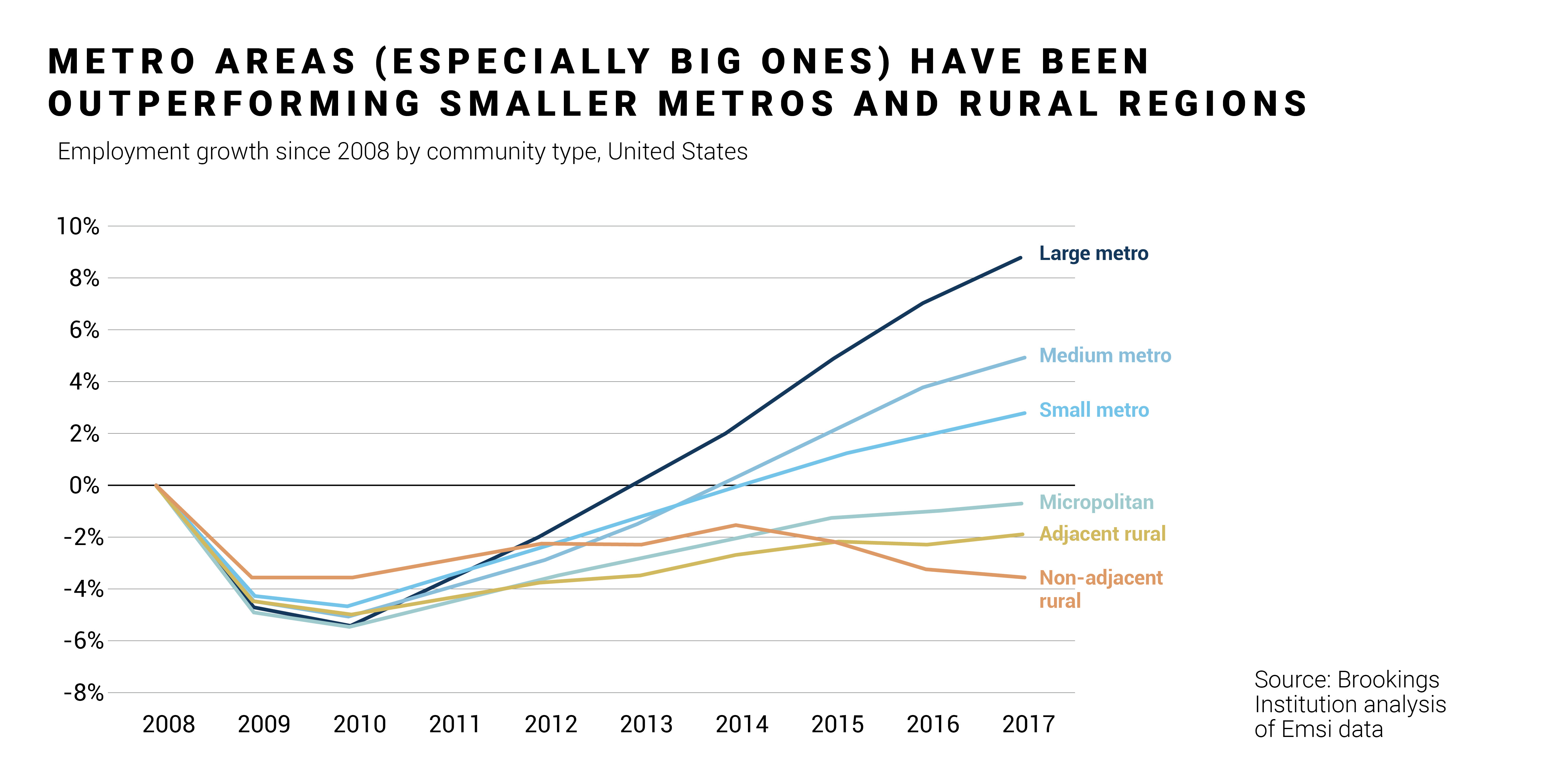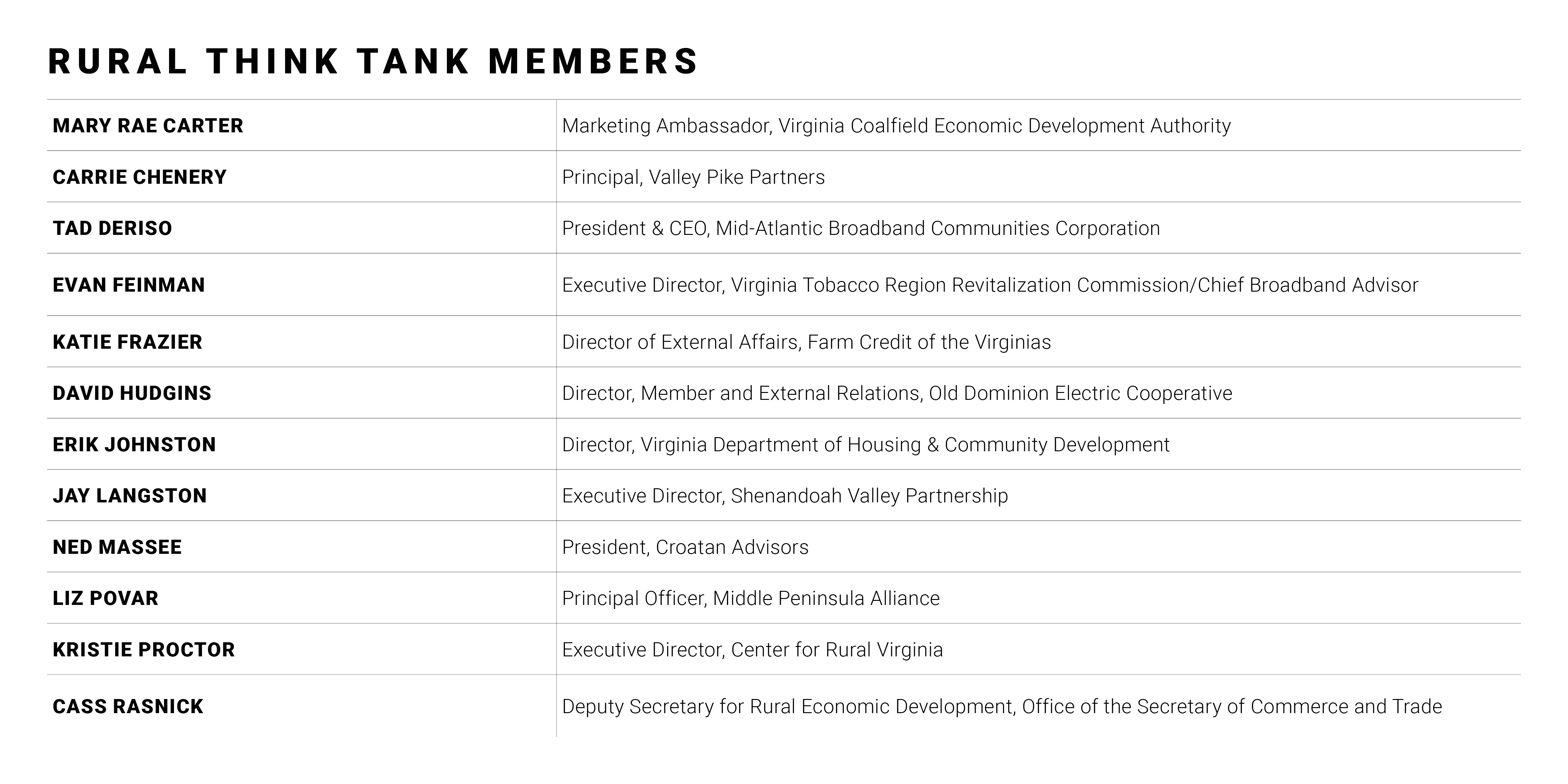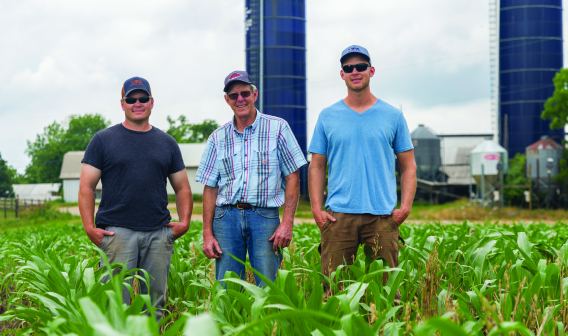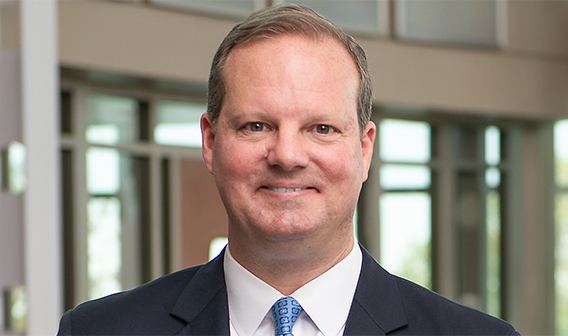America's Rural Growth Challenge
...and How One State Has Set Out to Tackle It
The Brookings Institution recently published a troubling analysis highlighting an expanding economic divide between metro areas (especially large ones) and rural areas in the U.S., as large metro areas have enjoyed considerably faster growth than smaller metros and rural localities.
With stagnant or declining employment and population, many rural communities across our country are struggling with a lack of economic opportunity, outmigration of talent, hospital and school closures, dying downtowns, insufficient digital infrastructure (i.e., broadband), and an opioid crisis, among other challenges.
Economic conditions have become so difficult in some rural areas that some economists have called for the creation of incentives to encourage individuals and families to relocate to cities where good jobs often are more readily available.
Virginia is taking a decidedly different approach. In the midst of the worrying national context for rural areas, Virginia has embraced a relatively radical goal — to position every region of the Commonwealth for economic growth.
To formalize this transformational goal, VEDP now measures its success not just based on the amount of jobs and capital investment it helps secure, but also on how many of Virginia’s regions experience employment growth each year.
Faced with many years of stagnant or negative growth in much of rural Virginia — economic conditions exacerbated by the decline of coal and natural gas extraction activity — rural development stakeholders in Virginia formed a “Rural Think Tank” group in 2017 to collaboratively identify, prioritize, and advocate for the top things Virginia could do (that it wasn’t already doing) to position the Commonwealth’s smaller metros and rural regions for growth.
Members of the group were encouraged that each small metro area and rural region in Virginia needs just 100–300 Commonwealth for sustained employment growth. That meant (and means) that rural growth is an achievable, if difficult, goal.
After evaluating current and past rural development initiatives, as well as exploring what other states and communities have done, the think tank group prioritized several high-impact initiatives. Among the top priorities identified by the group are the following five initiatives.
Thanks to the support of Virginia’s executive and legislative branch leaders, substantial progress is being made on each of these initiatives.
Ubiquitous Broadband Access
In Virginia, as in nearly all other states across America, there is an enormous gap between broadband access levels in urban and rural communities. In recent years, state leaders in Virginia have embraced near-ubiquitous rural broadband access as a top priority, recognizing that it is as essential to the full development of rural communities in the 21st century as electricity or telephone access was in the 20th century. Indeed, broadband access is not just about economic development — it is also essential for education, healthcare, social connectivity, and agriculture, among other things.
Broadband is to the 21st century what electrification was to the 20th. Rural communities need it to thrive and survive.
A recent report from Jobs for the Future (JFF) stated, “The nature of work in rural America is changing. In regions where broadband internet is adequate and affordable, remote employment and telecommuting are gaining momentum in industries such as IT, healthcare, and sales and marketing.”
In recent years, state investments in rural broadband access in Virginia have more than quadrupled, and rural broadband deployment is accelerating. For the first time in Virginia history, state leaders are now planning to secure near-ubiquitous broadband access for rural Virginia.
If we want kids in rural areas to have access to the latest curriculum, and to be able to work on their homework once they leave school, we need wide access to broadband.
Marketing Rural Virginia
There are many more rural communities seeking quality economic development opportunities than there are good economic development projects. Indeed, according to project data collected by Site Selection, roughly 80% of localities in the country don’t secure a single greenfield economic development project each year.
Virginia’s rural communities were doubly challenged in competing for economic development projects a few years ago, as Virginia was one of the only states in America without a marketing budget for economic development. State leaders have now embraced a goal to brand and expand national awareness of rural Virginia as the highly compelling business investment destination that it already is — one of the most attractive, competitive locations in the U.S. for manufacturing and other sectors interested in rural locations (e.g., business process outsourcing, data centers, distribution facilities, onshore IT delivery centers).
With a wide array of stunning landscapes and world-class employers, as well as some of America’s best public schools and nicest small towns, rural Virginia has a strong foundation to build upon. Funding is now being provided for targeted marketing initiatives to help ensure corporate executives and top site selection consultants across the U.S. — and key markets around the world — are aware of these distinctive assets.
Expanded Prepared Sites Inventory
In recent years, the lack of a prepared site was one of the most common reasons that rural Virginia communities missed out on high-impact advanced manufacturing and distribution projects. Billions in capital investment and many thousands of jobs were lost.
State leaders are now making smart investments to characterize every identified development site in Virginia of 25 acres or larger, enabling the state and its local partners to understand the competitiveness level of each site as well as the investments needed to prepare them for quality economic development projects. Moreover, the state has begun investing to prepare these sites through both the GO Virginia initiative and the Virginia Business Ready Sites Program. See The Business of Creating Business-Ready Sites for more details.
World-Class Custom Workforce Solutions
One of the top obstacles to attracting economic development projects to smaller metros and rural regions is the concern many executives have about being able to attract a qualified, well-trained workforce in those smaller labor markets. States like Georgia and Louisiana have addressed this challenge in part by offering world-class customized workforce recruitment and training programs. Working in partnership with the Virginia Community College System (VCCS) and four-year colleges and universities, VEDP is launching a cutting-edge, turnkey, customized workforce recruitment and training program, with a goal to be the best such program in America within 3-5 years. Learn more in Virginia Looks to Workforce Development Leaders on Its Way to the Top.
Transformational Economic Development Projects
Recognizing the unique challenges facing smaller metros and rural communities, state executive and legislative leaders have prioritized special initiatives to secure high-impact, quality economic development projects. For example, Virginia committed $2.5 million in new higher education programs at Blue Ridge Community College and James Madison University to secure a $1 billion Merck investment in Rockingham County that will create 100 high-quality jobs. Additionally, the Commonwealth recently secured a $400 million expansion of the largest Volvo Group plant in the world in Pulaski County, which will result in 777 new advanced manufacturing jobs.
Equally exciting, VEDP has collaborated with its state, regional, and local partners to launch a rural and small metro technology centers initiative that is working to attract top tech companies interested in locating domestic software development and tech services operations in lower-cost markets outside of big cities. Through this new initiative, the Commonwealth will leverage a statewide investment in computer science education of up to $1.1 billion to more than double the production of computer science degrees — a historic investment in tech talent that was the result of Virginia’s novel (and successful) bid for the Amazon HQ2 project. Much attention has been given to Virginia Tech’s new Innovation Campus in Northern Virginia, but most of the Commonwealth’s new computer science investments will occur in other smaller communities in Virginia, such as Blacksburg (Virginia Tech), Charlottesville (University of Virginia), Harrisonburg (James Madison University), Petersburg (Virginia State University), Radford (Radford University), and Williamsburg (The College of William & Mary), enabling big increases in the tech-talent pipeline inside or nearby nearly every smaller metro and rural region of Virginia. Learn more about Virginia's rural and small metro tech centers initiative in A New Frontier for Tech Talent.
No state has cracked the code on addressing America’s rural growth challenge, but Virginia seeks to be one of the first to do so. Working together, state, regional, and local leaders are leveraging the Commonwealth’s distinctive strengths to position rural Virginia to buck national trends.








